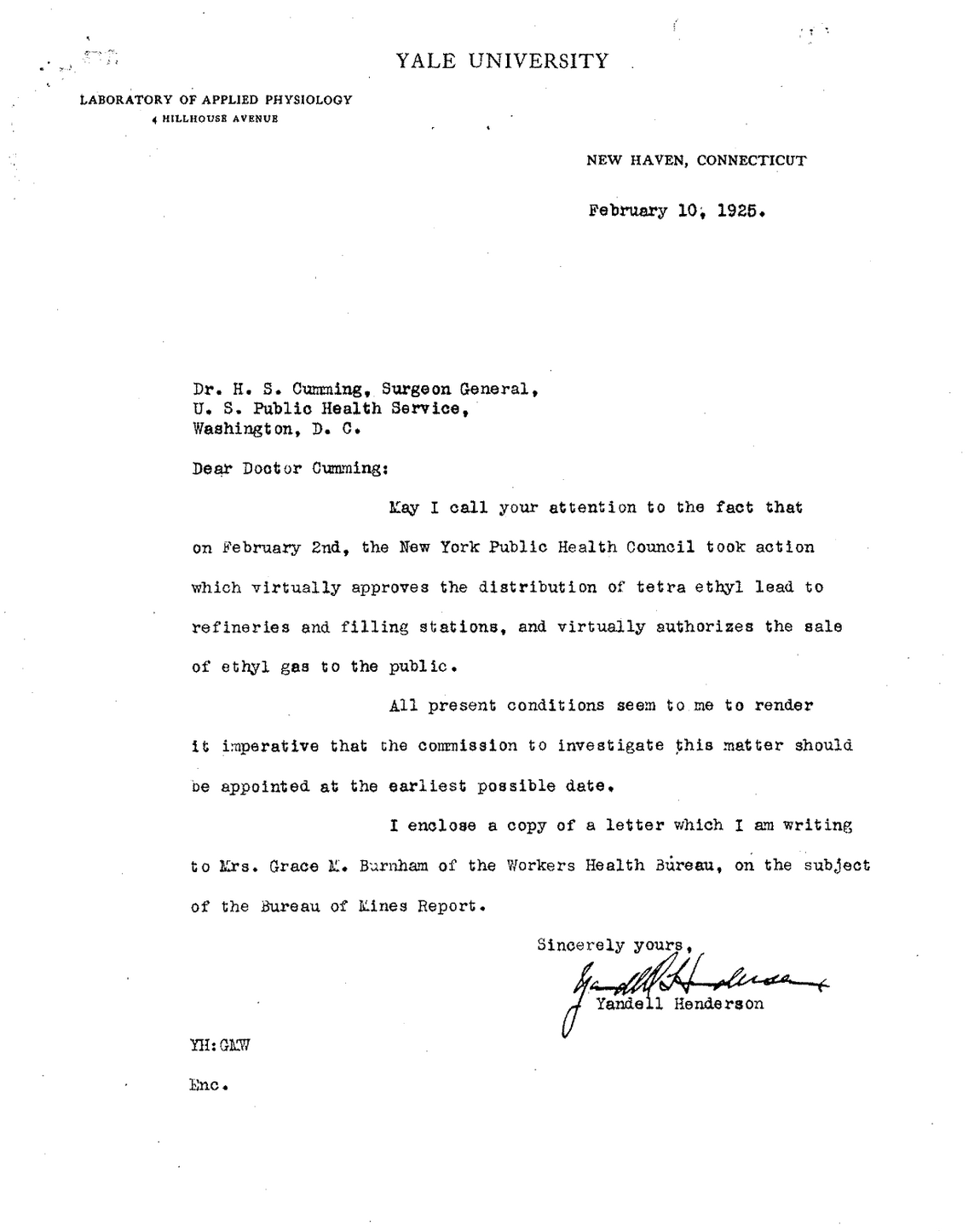A critique of the Bureau of Mines and leaded gasoline studies
Kairaluchi Oraedu
I chose a letter from 1925 in which Yale professor, Yandell Henderson, is writing to Mrs. Grace Burnham of the Workers’ Health Bureau. In this document Yandell criticizes the Bureau of Mines report on ethyl gas as inaccurate. He reveals that experiments done by the Bureau of Mines to test the effects of ethyl gas on rats were not representative of the highest levels of ethyl gas that humans could be exposed to in a garage or in a vehicular tunnel. I chose this document because I thought Yandell’s point about assessing the quality of experimentation was important. I was shocked by how the Bureau of Mines came to the conclusion that leaded gasoline was harmless, despite all the differences Henderson exposed between their experiment models and the real world. Henderson’s letter emphasizes that just because a corporation does experiments to prove the safety of their products, does not mean we can simply accept the results at face value. We must still think about what the scientific process was like when the experiments were conducted and what biases could have been imposed. For example, we must consider who is conducting the study and what is their relationship to these corporations.

